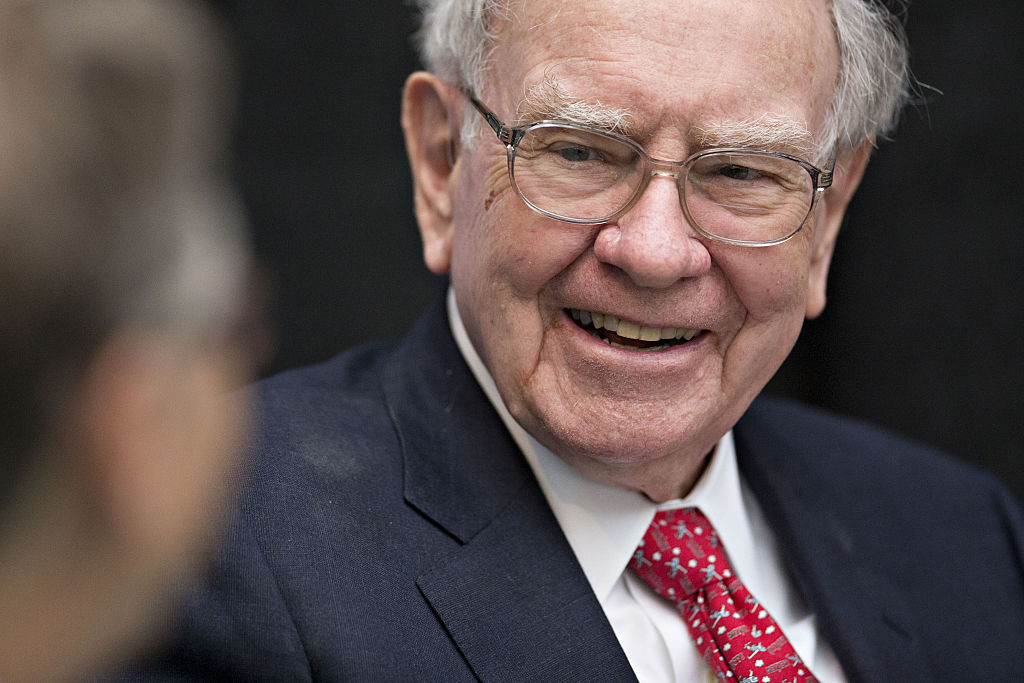Thomas Russo: the world’s greatest investors
A focus on long-term compounding became the core of Thomas Russo’s investment strategy.

Get the latest financial news, insights and expert analysis from our award-winning MoneyWeek team, to help you understand what really matters when it comes to your finances.
You are now subscribed
Your newsletter sign-up was successful
Want to add more newsletters?

Thomas Russo was born in 1955 and grew up in Titusville, Pennsylvania, a small town best known as the birthplace of the oil industry. He graduated from Dartmouth College with a degree in history in 1977 and from Stanford University with degrees in law and business in 1984. He then joined Ruane, Cuniff & Goldfarb, where he worked on the firm's flagship Sequoia Fund. In 1989, he joined Gardner Investments (now Gardner Russo and Gardner), a Pennsylvania-based firm catering mostly to high-net-worth individuals, where he manages the Semper Vic investment partnership.
What is his strategy?
In 1982, Russo attended a talk by Warren Buffett at Stanford, in which Buffett discussed how firms that were able to reinvest earnings and grow steadily over the long term offered large tax advantages for investors (since unrealised capital gains are not taxed). This focus on long-term compounding became the core of Russo's strategy.
He also took Buffett's advice to invest in high-quality firms with trustworthy management that were in a position to suffer short-term costs in the interests of building a strong long-term market position. Russo chose to focus mostly on firms with strong brands in a handful of industries (food, beverage, tobacco and media) and invested heavily outside the US at a time when international investing was unusual.
Try 6 free issues of MoneyWeek today
Get unparalleled financial insight, analysis and expert opinion you can profit from.

Sign up to Money Morning
Don't miss the latest investment and personal finances news, market analysis, plus money-saving tips with our free twice-daily newsletter
Don't miss the latest investment and personal finances news, market analysis, plus money-saving tips with our free twice-daily newsletter
Did it work?
Between 1990 and 2016, Semper Vic returned more than 12% per year, compared with around 9% for the S&P 500 (including reinvested dividends). Garder Russo and Gardner now oversees around $12bn in assets in Semper Vic and individual accounts.
What were his biggest successes?
In 1989, Russo began investing in Weetabix, which at the time was a family-controlled firm. Back then, the firm was trading at under £6 per share and he estimated that it was worth £13 per share. Russo ended up owning almost a fifth of the firm, which was sold to a private-equity group for £54 per share in 2003.
What lessons does his approach hold for investors?
As a private investor with limited resources, focusing on a few intrinsically attractive industries that you know well can be a wise strategy. While many people shun family firms, well-run ones can shrug off pressure from short-termist shareholders and invest for long-term growth. Many investors overlook tax issues, but this can have a large impact on returns and investors should aim to minimise taxes where possible.
Get the latest financial news, insights and expert analysis from our award-winning MoneyWeek team, to help you understand what really matters when it comes to your finances.

-
 Do you face ‘double whammy’ inheritance tax blow? How to lessen the impact
Do you face ‘double whammy’ inheritance tax blow? How to lessen the impactFrozen tax thresholds and pensions falling within the scope of inheritance tax will drag thousands more estates into losing their residence nil-rate band, analysis suggests
-
 Has the market misjudged Relx?
Has the market misjudged Relx?Relx shares fell on fears that AI was about to eat its lunch, but the firm remains well placed to thrive
-
 The Stella Show is still on the road – can Stella Li keep it that way?
The Stella Show is still on the road – can Stella Li keep it that way?Stella Li is the globe-trotting ambassador for Chinese electric-car company BYD, which has grown into a world leader. Can she keep the motor running?
-
 How to beat Warren Buffett – and the fund and trusts that have managed it
How to beat Warren Buffett – and the fund and trusts that have managed itWarren Buffett has achieved stellar returns for investors over a long and illustrious career. Can you rival his investment performance?
-
 Fractional shares: what are they and why HMRC is worried?
Fractional shares: what are they and why HMRC is worried?Investors who have flocked to investment apps offering fractional shares in an Isa could lose the tax-free status of their portfolios.
-
 8 ways to profit from Japan’s recovery
8 ways to profit from Japan’s recoveryCorporate reform, normalising monetary policy and cheap valuations make Japanese equities a top long-term bet, says Alex Rankine.
-
 What is Bernard Arnault's net worth?
What is Bernard Arnault's net worth?We look into Bernard Arnault's net worth – how did he make his billions?
-
 Power your portfolio with the profits of China’s electric-vehicle makers
Power your portfolio with the profits of China’s electric-vehicle makersOpinion A professional investor tells us where he’d put his money. This week: Ewan Markson-Brown of the CRUX Asia ex-Japan Fund highlights three favourites.
-
 Top investment ideas for 2023: silver, tech and drugs
Top investment ideas for 2023: silver, tech and drugsAdvice Our writers’ top investment ideas for 2023 include a cybersecurity stock, bitcoin and a psychedelic treatment for depression.
-
 Why we need a little patience
Why we need a little patienceAdvertisement Feature In volatile markets it’s easy to get spooked and sell your investments. But that could cost you many thousands of pounds. A patient approach can be much more rewarding.